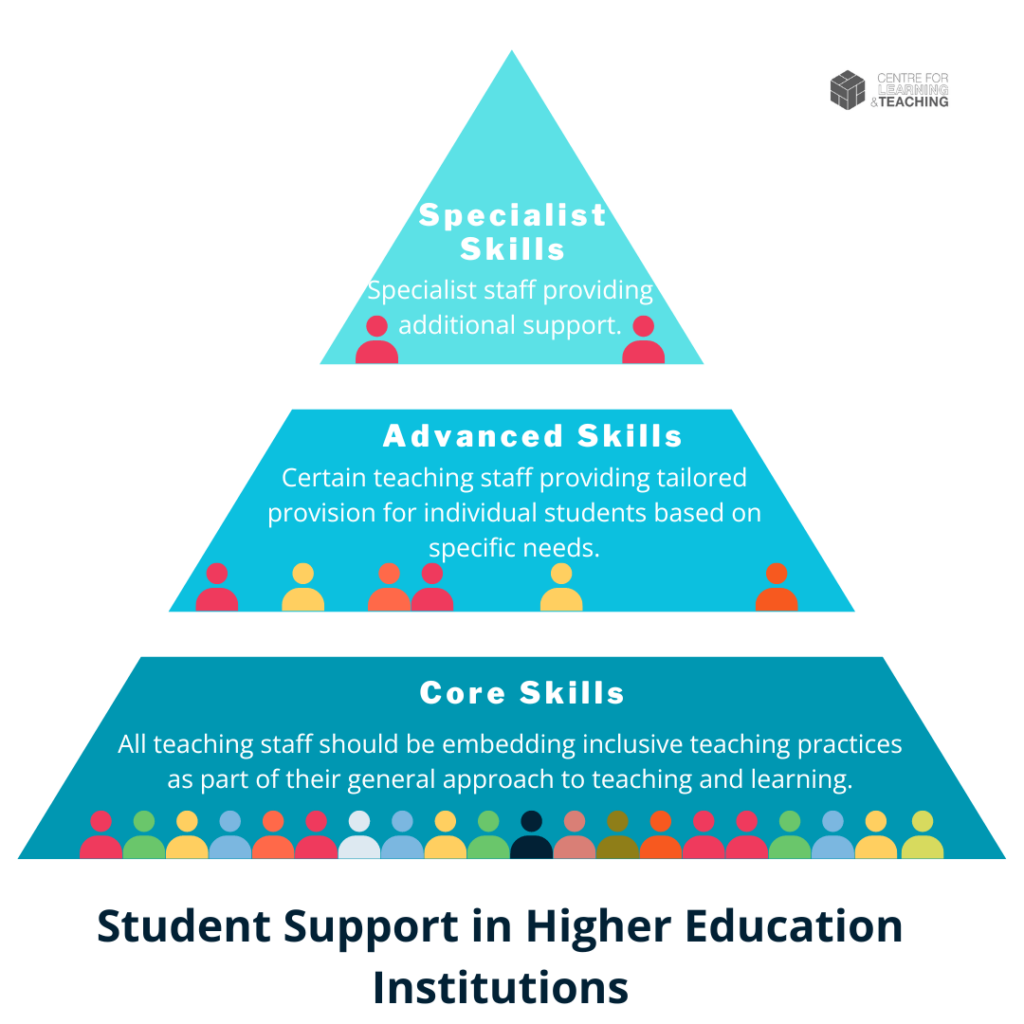Published on: 17/07/2024 · Last updated on: 26/09/2024
Pyramid model
The pyramid model shown below (adapted from Wray, 2018) provides a useful way of conceptualising how to best support the diverse needs of our students. As well as the type of support a student requires, it can also be useful to think about the level of support needed. From the pyramid you can see that support for all students lies with all teaching staff – however, you are not alone. Additional support is available for students and staff.

Core Skills
As a general approach, all teaching staff should embed inclusive learning and teaching approaches that will support all students to succeed and promote opportunities for learning which are effective, efficient, and flexible. Developing inclusive practice will also help to anticipate student needs which will, in turn, reduce the need to make adjustments for individual students. For guidance and resources on how to embed inclusive practices in your teaching visit our Inclusive Learning & Teaching page.
Advanced Skills
In addition to general approaches to inclusive teaching and learning, student Disability Action Plans (DAPs) outline individual adjustments associated with specific support labels which will enable them to fully access and engage with the curriculum (middle tier). Remember, embedding inclusive learning and teaching to your general approach may already address some of these needs. However, if you believe a student’s exisiting DAP needs changing or a student needs extra support contact Disability Services straight away.
Specialist Skills
As well as supporting your students within the curriculum, there are various professional services which can provide additional support to students (upper tier). A student’s support needs may fluctuate over time and it may be necessary to signpost students to further support. For example, students with a DAP may also be able to access specialised provision to support them such as mentoring or study skills. Students may also require access to specialised provision such as counselling. Visit the Disability Services page for more information.